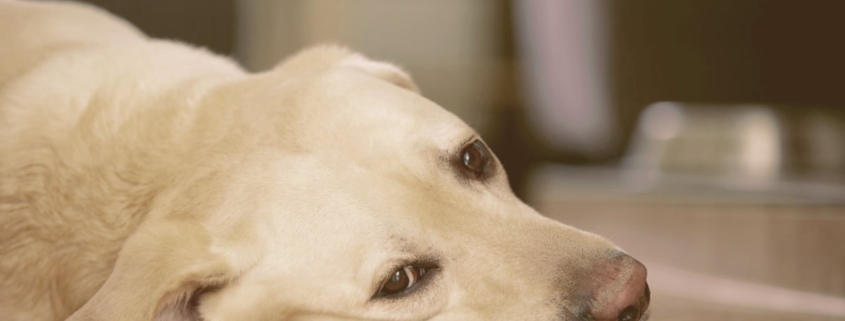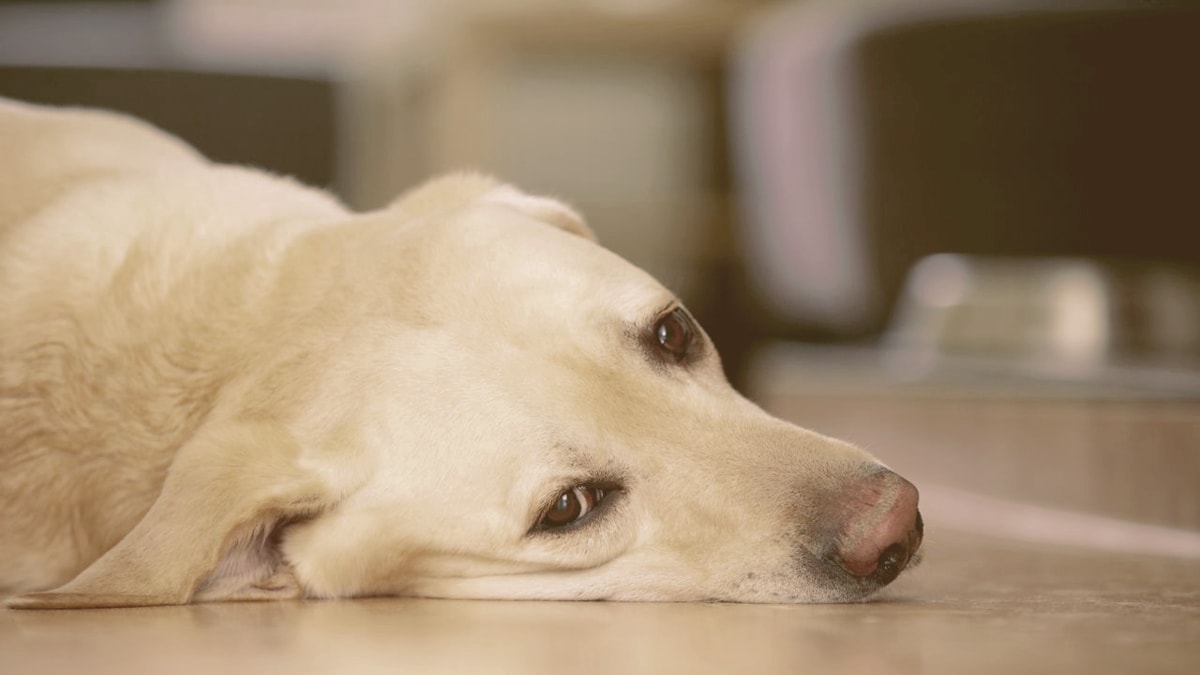
How to Tell When Your Dog Is Tired
Alex Vicente • Updated on August 1, 2023
- This review contains affiliate links. Read more here.
- Not a substitute for professional veterinary help.
There are many activities you may be unaware of that exhaust your dog physically, mentally, and emotionally.
This is why being able to tell when your dog is tired is an important aspect of being a dog owner.
Whether you realize it or not, your dog is always telling you how tired he feels during the day.
The problem is that you may not have a trained eye when it comes to picking up on the signs your dog is giving you when he is tired, especially if you are a new dog owner.
Keep reading to learn about how you can tell when your dog is tired.
Table of Contents
Your Dog Frequently Yawns
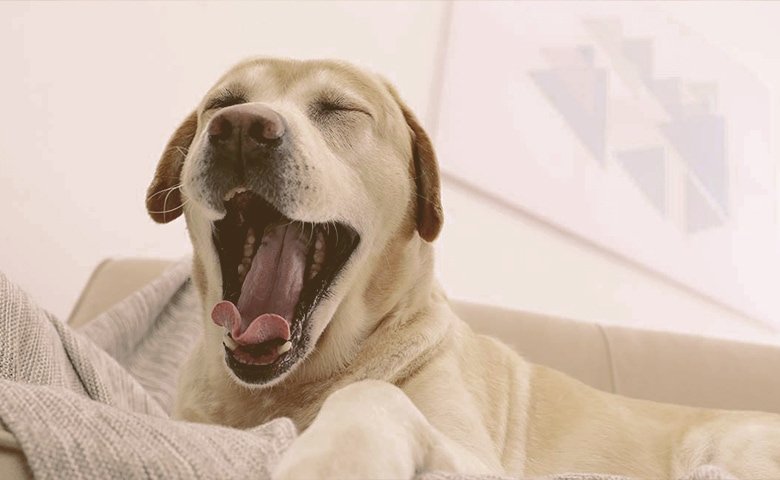
Yawning is a reflex and natural response to being tired that you can see across multiple species. Just like with humans, dogs yawn when they are tired. Yawning is much more visible and easier to notice compared to other signs of tiredness your dog might be giving you. If your dog is yawning throughout the day, then your dog is most likely tired and in need of some rest.
Conversely, your dog might yawn because of your own yawns.
- A study conducted in 2013 revealed that dogs are more susceptible to “yawn contagion” from their owners compared to random strangers.
- If you yawn frequently around your dog, then your dog may not be tired but is reacting to your yawns instead.
- The study focused on the link between contagious yawning and empathy. Since dog owners are emotionally connected with their dogs, higher levels of empathy are seen between dogs and dog owners.
- According to the study, higher levels of empathy increase the susceptibility to contagious yawning. Compared to strangers, dogs yawned more often when seeing their owners yawn.
Although yawns are easy to distinguish as an indicator of fatigue, yawning is a peculiar phenomenon that is contagious between species such as humans and dogs. Unless you or one of your family members is tired and yawning around the dog a lot, you can generally assume that your dog is tired and needs time to rest.
Your Dog Is Less Responsive

When a dog is tired, this will lead to a slowdown in its cognitive functions and abilities. Dogs will not react as strongly to stimuli put in front of them and they will not listen to your commands either. This can make obedience training for younger dogs exceedingly difficult because your dog will struggle to pay attention and learn the commands you are trying to teach them.
Rather than trying to be rebellious or stubborn, dogs will struggle to listen to your commands when they are tired because they are lacking the necessary rest for their brain and cognition to work properly. This is similar to what you see in people: someone who is sleep-deprived will be less responsive and lag throughout the day. Irritability may also accompany this if your dog is sleep-deprived and tired.
Sleep is important for dogs, just as it is with humans. If you notice your dog is not listening to you and is having difficulties paying attention, then you should let your dog get some rest because they are probably tired. After a long nap, your dog will recover from its exhaustion and go back to being its energetic self and be more responsive to you.
Your Dog Has a Shorter Attention Span
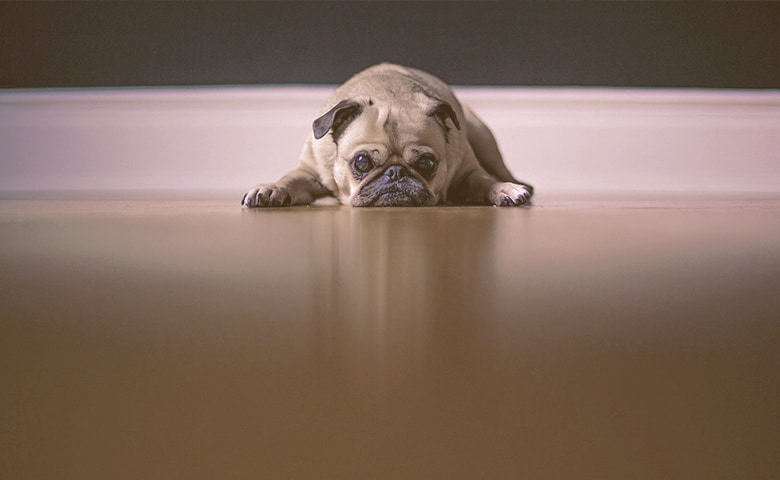
One of the most common things you will see in a tired dog is a shorter attention span. This means your dog will be unable to pay attention to one object or stimulus for too long. A lack of patience and a sense of listlessness often pair together when it comes to dogs with shorter attention spans, since these symptoms are all usually associated with excessive tiredness.
Toys, games, and other fun activities you may like to do with your dog may be difficult to do when your dog’s attention span is shortened, as they will lose focus constantly. If you notice that your dog is struggling to pay attention during an activity, then your dog will need some time to rest to regather their cognitive resources before they can play with you again and recover their typical attention span.
Your Dog Is Not Acting Normal
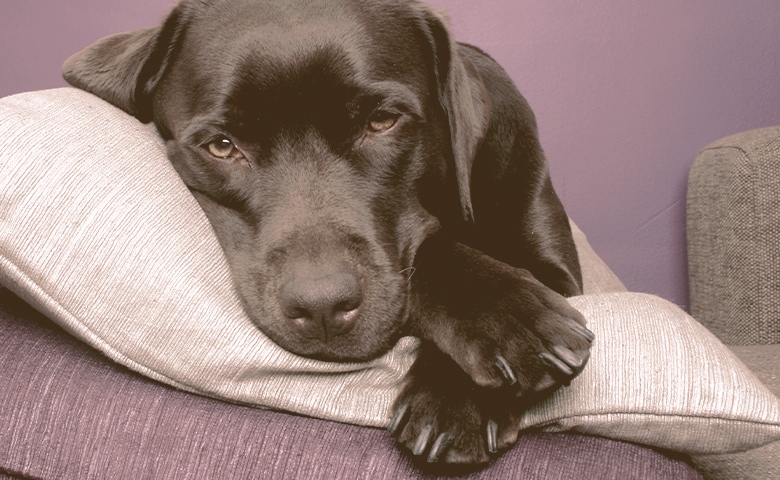
Have you ever noticed your dog acting strange? Although this may be because of other underlying health problems, this could also be an indirect way of telling you that your dog is tired. Humans can suffer from dips in mood when deprived of sleep, and the same applies to dogs. If your dog seems irritable and starts engaging in abnormal behavior, then your dog might be tired.
The best way to determine whether your dog is acting strange because of tiredness or another health-related reason is by taking a trip to a local veterinary office:
- A veterinarian can provide you with an accurate diagnosis for the cause of your dog’s symptoms
- If the doctor cannot identify any health-related issues with your dog, then you should let your dog rest for a few days and wait to see if your dog gets any better
- If your dog’s condition does not improve after a few days of rest, then another visit to the veterinary office is highly warranted to prevent any further health complications with your dog
Having your dog looked at by a trained professional is always the best option if you cannot figure out what is wrong with your dog. Sometimes your dog may only need some rest to feel and act normal again.
Your Dog Spends More Time Resting

A more obvious way to tell if your dog is tired is if your dog spends more time laying down and resting. Rather than push through exhaustion and fatigue, some dogs will reduce their activity levels and prioritize resting when tired. This is a natural response to sleep deprivation or other health problems that drain your dog’s energy.
Unless your dog is suffering from an illness or health problem that needs to be addressed, then you should allow your dog to rest when they are laying down. If you take your dog with you on runs or play catch at the park often, then your dog will naturally experience some fatigue and need some time to recuperate.
An alternative scenario to explain why your dog is resting a lot is because of medications. In the veterinary world, sedatives are commonly prescribed to dogs who suffer from anxiety or nervousness. In many cases, these drugs are the same ones people use for similar mood and behavioral problems. As sedatives, these drugs will calm down your dog and also make them more tired.
Some sedatives commonly prescribed to dogs include:
- Acepromazine
- Gabapentin
- Trazodone
- Melatonin
These drugs can help ease anxiety, pain, and nervousness for dogs. The consequence of repeated applications of this drug is reduced activity in dogs and more time spent resting. Aside from this, elderly dogs also tend to spend more time resting. If you own an older dog, then your dog may be less active and rest more because of their age.
Your Dog Falls Asleep after Finishing an Activity
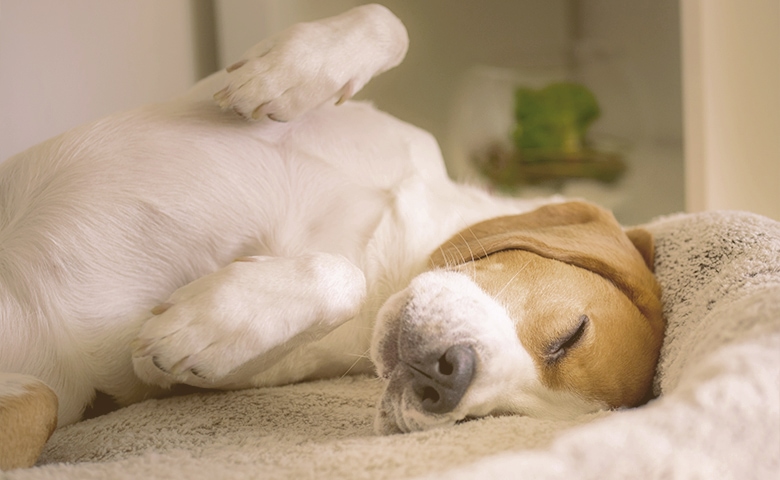
Going to a dog park and spending time outdoors with your dog is important for keeping your dog active and healthy. After a lot of rigorous activity outdoors, your dog will probably be tired. This is especially the case if your dog has been active for more than a few hours. When this happens, your dog may take a nap and even fall asleep to recover from their exhaustion.
Like with any animal, prolonged periods of activity can tire out your dog. This could be in the form of physical exercise or stimulation. If your dog spends a lot of time at the dog park interacting with other dogs and people, then this can easily drain them as much as exercise would because of the mental stimulation.
A common form of mental stimulation younger dogs often engage in is obedience training. When you get a new dog, it is essential that you teach your dog how to listen to you so that they can behave properly and not have behavioral problems in the future. However, you want to make sure you are not overdoing the obedience training and give your dog time to rest, even if these are short intervals of rest.
Many times your dog will seem more energetic after some good exercise, but sometimes the opposite will happen if they are already tired, to begin with. Other factors such as sleep and appetite will also play a role in how tired your dog feels after vigorous activity. If your dog has not eaten properly before engaging in rigorous activity, then your dog may try to conserve energy by resting afterward.
Your Dog Is Acting Reckless
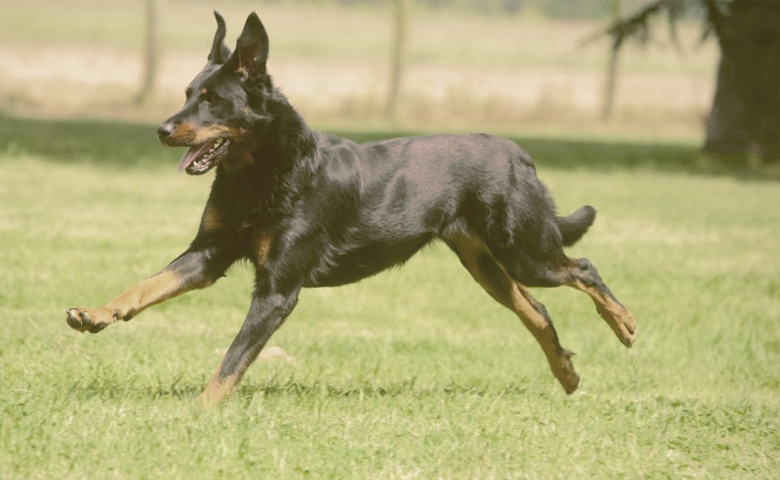
A dog that is acting recklessly is another indicator that your dog is tired. Dogs respond to sleep deprivation and exhaustion in similar ways to humans, so a tired dog will sometimes act out recklessly because they are suffering physically and psychologically and do not know how else to show it.
When your dog is acting recklessly out of exhaustion, then expect to see one or more of the following behaviors:
- Biting
- Barking
- Constantly moving
Hyper-active dogs that have a tough time falling asleep are prone to these types of reckless behaviors as they are unable to properly regulate themselves. The best way to resolve this is to make sure your dog is eating well and provide a comfy place for them to sleep at night. In rare cases, sleep medication can be given to dogs that struggle to sleep at night.
If you notice your dog is acting more reckless than usual because they are tired, then make sure that your dog gets plenty of rest at night. You can help your dog relax with a calming voice, a soft place to sleep in, and a light massage if you want to be extra proactive.
Your Dog’s Breathing Is Irregular
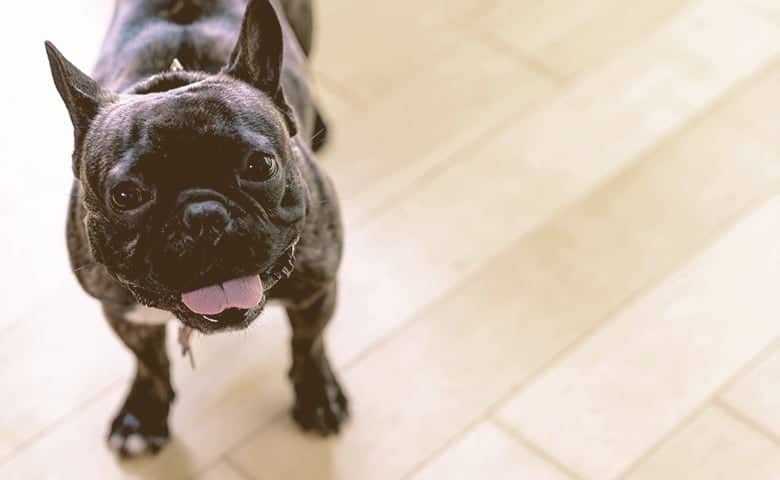
If your dog has been active for extended periods of time, then you have probably seen your dog breathe heavily and irregularly sometimes. This irregular breathing is a sign of tiredness and fatigue. Dogs breathe irregularly when their lungs are trying to get as much oxygen as possible. Give your dog some time to rest and their breathing should return to normal.
Alternatively, dogs suffering from anxiety or nervousness also may engage in irregular breathing if they are afraid or expecting a potential threat. In this case, your dog is not tired but is experiencing emotional distress that is being expressed in the form of an irregular breathing pattern.
Depending on your dog and the situation, your dog’s irregular breathing could be telling you that your dog is tired, but it could also be a consequence of the anxiety your dog is experiencing. As the dog’s owner, you can rely on your own judgment to determine which of these two scenarios is most probable.
Your Dog Is Not Eating Enough
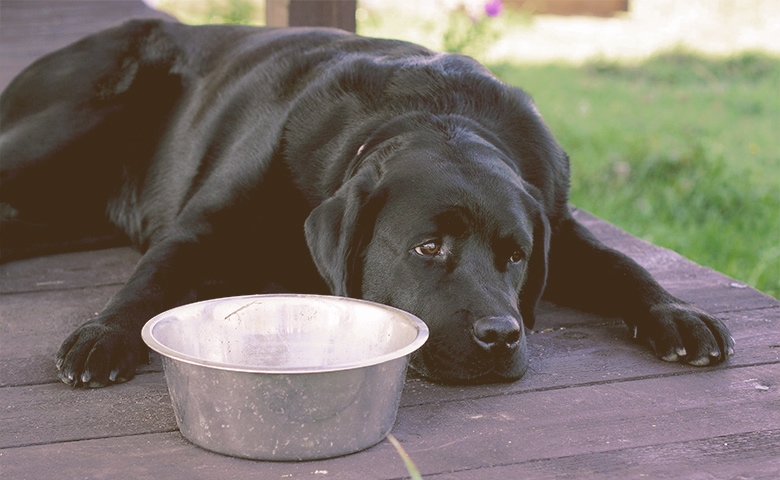
When your dog is not eating enough and is malnourished, this could drastically reduce your dog’s energy levels and make your dog chronically tired. Even if you are filling up your dog bowl consistently, make sure your dog is eating the food and that other pets around the house are eating the food instead. Other dogs, cats, and even raccoons could be eating your dog’s food when you are not around.
The daily caloric intake of your dog should match the amount of energy your dog expends. So if your dog is highly active, then making sure your dog is eating enough is even more important for maintaining a stable energy source for your dog. In comparison, less active dogs do not need as much food, but you should still be making sure they are properly fed.
When your dog is not eating enough, this will cause:
- Chronic tiredness
- Dips in mood and quality of life
- Weight loss
Unless your dog is overweight and is suffering health problems as a result, you should always make sure your dog is eating enough to sustain themselves through their daily activities. Even with overweight dogs, the caloric deficit should not be too extreme.
Alternatively, your dog might be picky about the food they eat or have some other health problem that is reducing their appetite. If your dog is picky about their food, sometimes mixing in some wet dog food might do the trick and motivate them to eat their dry dog food. Changing the brand of dog food you are giving is also another option worth considering.
Underlying health problems could also reduce your dog’s appetite and cause your dog to be tired. If you suspect this to be the case, then visiting your local veterinarian is the best option, as they can properly diagnose and treat your dog.
Your Dog’s Diet Affects Their Energy Levels
Something you may not have considered that might be contributing to your dog’s tiredness is their diet. Dog diets are structured in a similar way to human diets, so if your dog is not eating well they will not be able to perform at their best and will be more tired often.
When your dog is not getting the nutrients they need from their diet, their physical and mental performance will wane. This means your dog will have less energy and be more tired because its body is not getting the nutrients it needs to function properly. Just like there are unhealthy human diets, there are unhealthy dog diets as well.
There are several key macro and micronutrients that should be in your dog’s diet:
- Protein
- Fats
- Carbohydrates
- Vitamins
- Minerals
Without these essential nutrients, your dog’s health will not be where it could be and they will be more tired. Making sure there is enough protein, fats, and carbohydrates is important. At the same time, an excess of protein, fats, or carbohydrates can also be a problem.
Depending on the size of your dog and how active they are, you will have to gauge what is the optimal amount of food for them without compromising their health. Eating too much or too little can negatively impact your dog’s energy levels.
Protein and Fat
Sufficient protein intake is crucial for maintaining your dog’s body and health. Protein keeps your dog’s cells and organs working properly and is necessary to have a strong immune system. Many of the hormones that your dog produces, such as adrenaline, are built with proteins, so without them, this process is inhibited. Without healthy hormone production, your dog will lack energy and be more tired.
Lean meats like chicken and fish are great sources of protein for your dog. You can easily check your dog’s food for meats that will provide the protein your dog needs to stay energetic and healthy.
Having enough fats is also an important part of your dog’s diet. Like proteins, fats are also vital to your dog’s hormone production. Fats also are one way your dog stores energy and helps sustain your dog during rigorous activities. Once again, fish are a great choice to have in your dog’s diet, as fish contains both high levels of protein and healthy fats like omega 3s.
Carbohydrates, Vitamins, and Minerals
The primary energy source that your dog will be relying on when physically active is carbohydrates. Unlike fats, carbohydrates are not used to store energy, but for short bursts of energy that your dog uses when they are running around. Fruit, vegetables, and grains like wheat all are sources of carbohydrates.
If you want your dog to have more energy and live a healthier life, then make sure you include fruits and vegetables in your dog’s diet. Fruits and vegetables are healthy sources of carbohydrates, fiber, and vitamins for your dog. Not having enough fruits and vegetables in your dog’s diet can lead to nutrient deficiencies and other health problems for your dog.
Your Dog Is Not Excitable
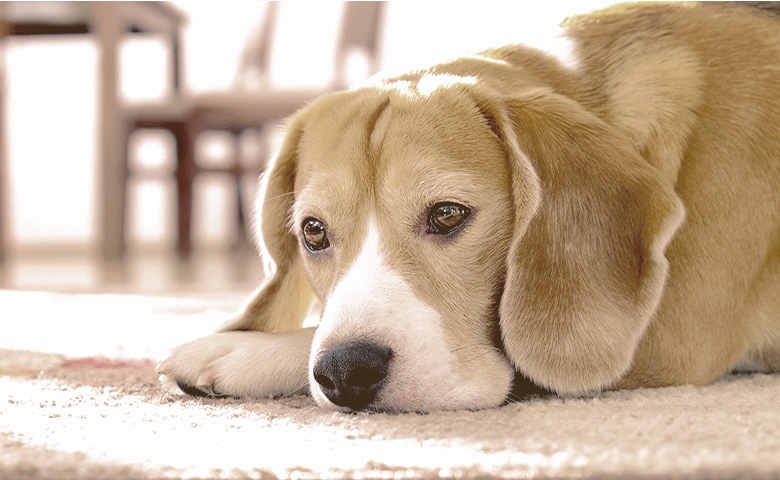
A lack of excitement is one way to tell your dog is tired. You may notice that your dog is not getting excited about things that you usually get them going. If your dog does not get excited when you bring out its favorite toy or food, then your dog is probably tired. Ample time to rest is the best remedy for this so your dog can regain their usual excitement and enthusiasm.
This is similar to when your dog is less responsive. If your dog is less excitable then your dog is less responsive and vice versa. A slowdown in cognitive function and lower energy levels are associated with both. With too much stimulation, your dog can easily become tired and lose interest in activities and toys they usually enjoy.
Your Dog Cannot Walk or Stand up Properly
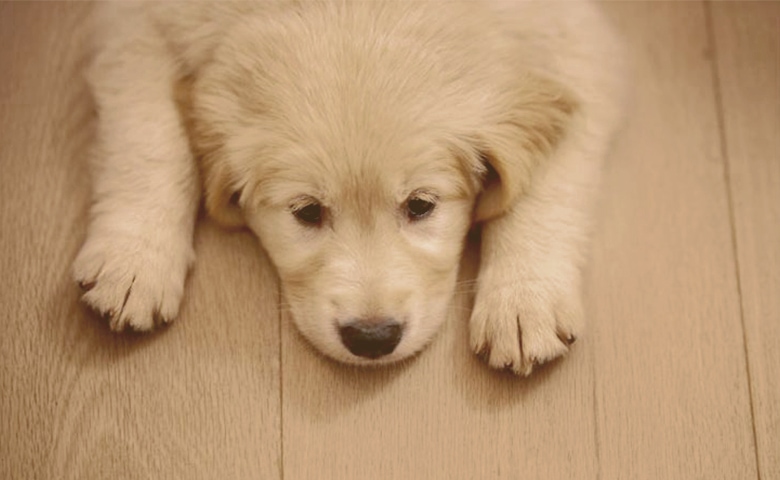
In extreme cases, your dog may not be able to walk or stand up properly if they are overtired. Generally, this will only happen if your dog is completely fatigued and is struggling to do basic movements as a result. At moments like this, you should immediately stop what your dog is doing and allow them to recuperate. This is not healthy for your dog and is something that should be avoided.
Your dog can be overtired because of sleep deprivation or too much emotional and mental stimulation. If your dog is unable to walk or stand up properly for an extended period of time, then you should take your dog to a veterinarian, as this might be a symptom of other underlying health problems.
Your Dog Is Moody
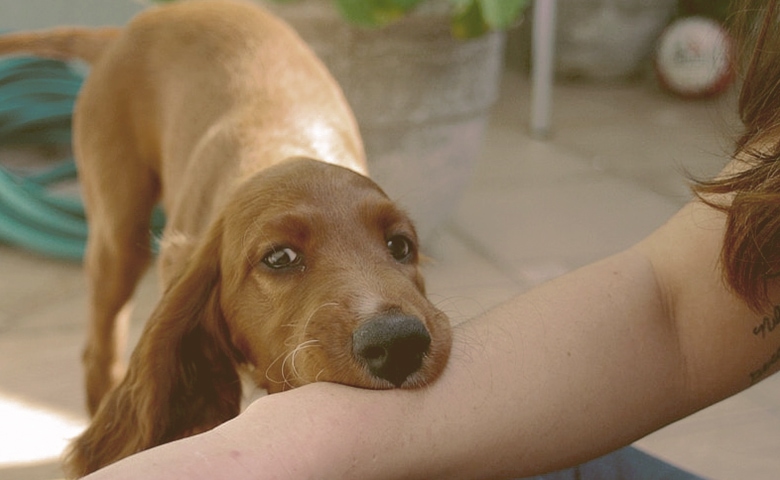
When your dog is difficult to deal with, overly demanding, and begging for attention, then your dog is moody. At times like these, it is easy to dismiss this behavior as your dog acting overly needy or clingy, but in reality, your dog is most likely moody and trying to get you to notice a problem. Dogs get moody when they are tired and will go out of their way to tell you this through their misbehavior.
A moody dog is often a tired dog. When your dog is tired this can make them moody and irritable because they are unable to get the rest they need. Some behaviors you may observe when your dog is moody include:
- Barking
- Biting
- Unable to sit still
- Growling
- Lip-licking
- Begging for attention
If your dog is displaying any of these behaviors, then you should put your plans with your dog on hold and give them time to take a nap. After a good nap, your dog will return back to its normal selves and stop acting out to get your attention.
Your Dog Is Drinking More Water
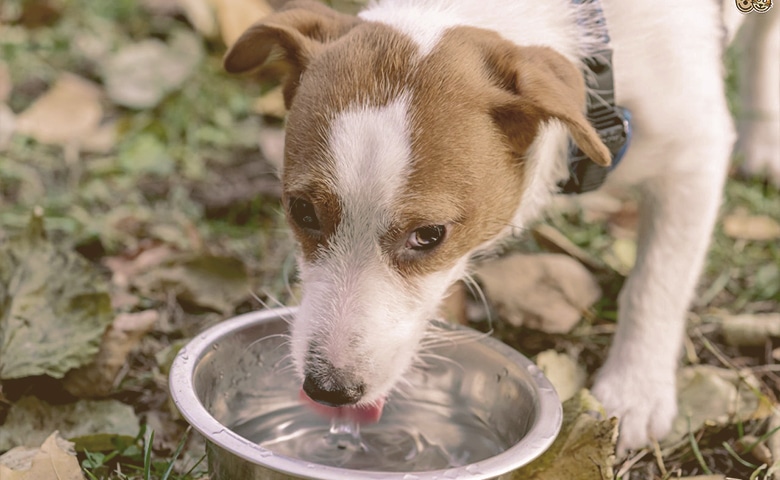
When your dog is overstimulated and excited, this can cause your dog to become excessively thirsty. This thirst is a symptom of the excitement and exhaustion your dog experiences in situations where they are around a lot of people or dogs. Social interactions between dogs and unfamiliar people are emotionally demanding, so this can increase your dog’s thirst and suggests they are getting tired.
If you invite guests over that your dog is unfamiliar with and you notice your dog drinking more, then make sure to give your dog time to rest when your guests leave. The emotional strain of being around dangers can be high, especially for dogs with pre-existing anxiety problems.
Your Dog Is Hiding
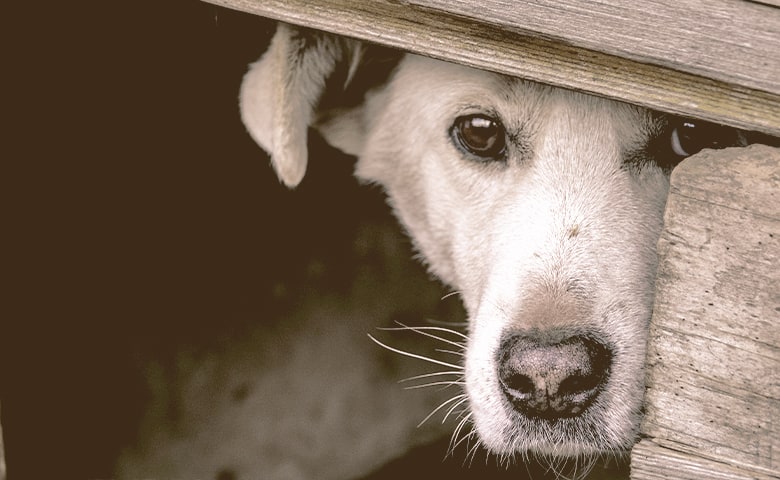
For socially awkward and shy dogs, hiding is a coping mechanism they may use when they are tired. If you invite friends over that your dog is unfamiliar with, then this may be emotionally exhausting and your dog will retreat somewhere where they feel safe. This is not because your dog is physically tired, but that your dog is emotionally strained and needs time to rest and relax in solitude.
Once your dog is familiar with your friends and family, then your dog will not get tired so easily. This will be a slow and gradual process for dogs that suffer from terrible social anxiety, but for most dogs, this is something they can quickly become accustomed to. With more and more exposure to the same people, most dogs can gradually start to trust new people and form a degree of closeness with them.
Socially anxious dogs experience high levels of stress around unfamiliar people who the dog may consider a threat. Consequently, these dogs will overproduce stress hormones such as cortisol and adrenaline to prepare for the perceived threat. However, the consequence of this stress response is exhaustion because of all the resources their bodies must use to prepare for a fight-or-flight response.
In the case of socially anxious or traumatized dogs, the flight response is the most common response to strangers and other perceived threats. So if you notice your dog is hiding, then your dog may be dealing with anxiety and needs somewhere to rest and relax. A dog bed or house are effective ways to provide your dog with a safe space where they can feel comfortable, relax, and rest when they need to.
Sources
Dogpackr – 10 Signs and symptoms your dog is over tired or exhausted!
Central California SPCA – How Do I Tell if I Have a Lethargic Dog?
Animal Kingdom – Signs Of A Sick Puppy
Plos – Familiarity Bias and Physiological Responses
The MSPCA–Angell – Pre-Hospital Sedation Options
k9 Natural – Why diet is so important to your dog
VCA Hospitals – General Feeding Guidelines for Dogs
Pet Helpful – Do Puppies Get Cranky When Tired?

